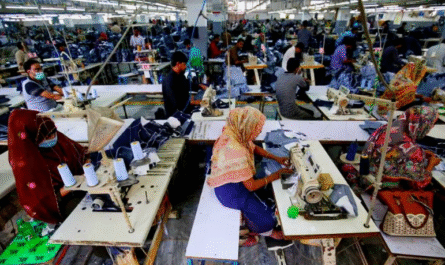In a long-awaited development, there is good news for Pakistan Steel Mills (PSM) employees, as the government has announced steps to resolve long-standing issues surrounding their salaries, pensions, and job security. After years of uncertainty, layoffs, and financial struggles, employees of the country’s largest industrial complex can finally hope for some relief. This move has not only lifted the morale of thousands of workers but also brought renewed attention to the revival and restructuring of Pakistan Steel Mills—an institution once considered the backbone of Pakistan’s industrial growth.
Background of Pakistan Steel Mills
Established in the 1970s with the cooperation of the Soviet Union, Pakistan Steel Mills was once a symbol of industrial progress. At its peak, PSM had the capacity to produce over 1.1 million tons of steel annually and employed more than 30,000 workers. It supplied steel for construction, defense, automobiles, and infrastructure projects across the country.
However, due to mismanagement, corruption, lack of modernization, and political interference, PSM’s performance declined sharply after the 2000s. By 2015, the plant had ceased production completely, leaving thousands of employees in limbo. Since then, the government has struggled to decide whether to privatize, restructure, or shut down the entity, while workers faced delayed salaries, halted pensions, and job losses.
The Latest Announcement
The good news for employees comes in the form of multiple government measures aimed at addressing their financial and professional concerns:
- Release of Pending Salaries and Pensions
The federal government has approved funds for the clearance of pending salaries and pensions of PSM employees. This decision is particularly significant for retired workers who have been waiting months, in some cases years, for their dues. - Job Security and Settlement Packages
Employees who were laid off during previous restructuring phases are likely to receive enhanced settlement packages, while existing staff members may see improved job security under the new plan. - Revival and Restructuring Plan
The government is exploring partnerships with international investors to revive production at the mills. This would mean not only protecting current jobs but also creating new employment opportunities in the future. - Medical and Welfare Benefits
Authorities have also pledged to restore medical facilities and welfare benefits that were previously suspended, providing much-needed relief to families dependent on these services.
What This Means for Employees
For thousands of families tied to PSM, this news brings hope after years of uncertainty. Employees and retirees alike have faced severe hardships due to delayed salaries, unpaid pensions, and limited job prospects in the market. Some of the direct benefits of the latest decision include:
- Financial relief for workers and pensioners struggling to meet daily expenses.
- Better healthcare access through the restoration of medical benefits.
- Reduced anxiety regarding job security and future prospects.
- Opportunities for re-employment if revival plans move forward successfully.
For many employees, the announcement is not just about financial aid but also about recognition of their decades-long service to one of Pakistan’s most iconic industrial institutions.
Economic and National Significance
Pakistan Steel Mills is not just about its employees—it holds immense significance for the national economy. Reviving PSM can:
- Reduce reliance on imported steel, saving millions in foreign exchange annually.
- Support infrastructure projects such as dams, roads, bridges, and housing schemes.
- Create employment not only within the plant but also in allied industries such as transport, mining, and engineering.
- Boost investor confidence by signaling that the government is serious about reforming and reviving key state-owned enterprises.
If the revival plan is executed properly, PSM could once again play a vital role in Pakistan’s economic growth.
Challenges That Remain
While the good news is encouraging, significant challenges remain in ensuring a sustainable future for PSM and its employees:
- Financial Burden on the Government: The mills have been incurring losses for years, with billions of rupees in debt. Continuous bailouts are not sustainable without structural reforms.
- Privatization vs. Revival Debate: There is ongoing debate over whether privatizing PSM is the best way forward or whether it should remain under government control with new management.
- Modernization Needs: The plant requires massive upgrades in technology to compete with global steel producers. Without modernization, revival may not be sustainable.
- Political Interference: Frequent changes in policies with each new government have historically hindered PSM’s progress. Stability and long-term commitment are essential.
The Way Forward
To secure the future of Pakistan Steel Mills and its employees, experts suggest a comprehensive restructuring plan. This should include:
- Strategic partnerships with international steel companies to bring in investment and technology.
- Transparent management free from political influence.
- Diversification of products to cater to local and international markets.
- Training and skill development programs for employees to match modern industrial standards.
By taking these steps, PSM could transform from a financial liability into a revenue-generating asset once again.
Conclusion
The government’s decision to provide relief to Pakistan Steel Mills employees marks a turning point in the long struggle of thousands of workers. For many, this is not just financial support but a lifeline after years of uncertainty and hardship. While the announcement brings hope, the real challenge lies in ensuring the sustainable revival of PSM.



